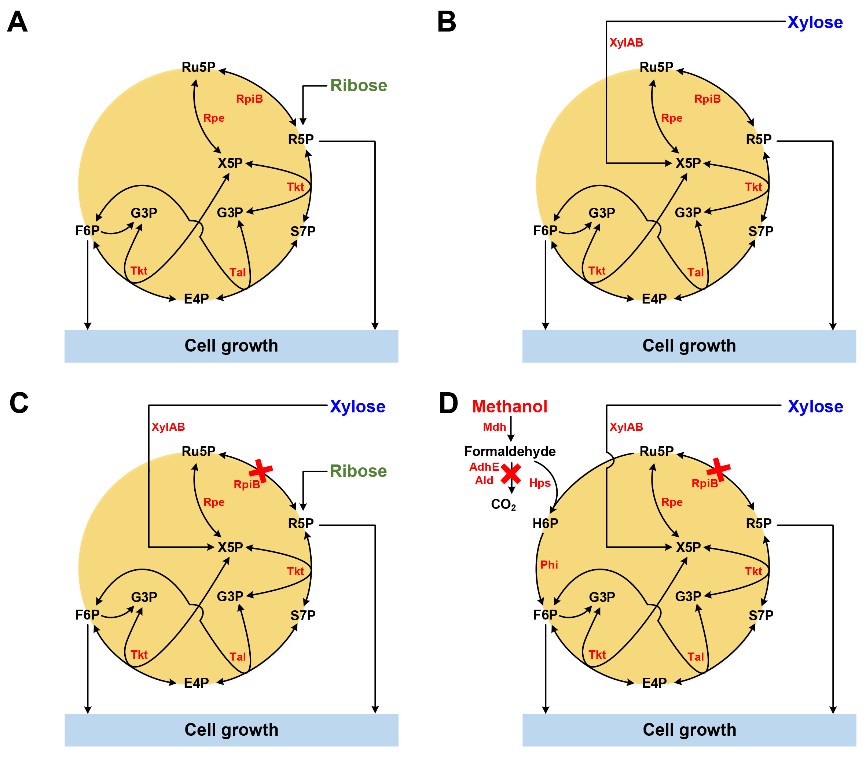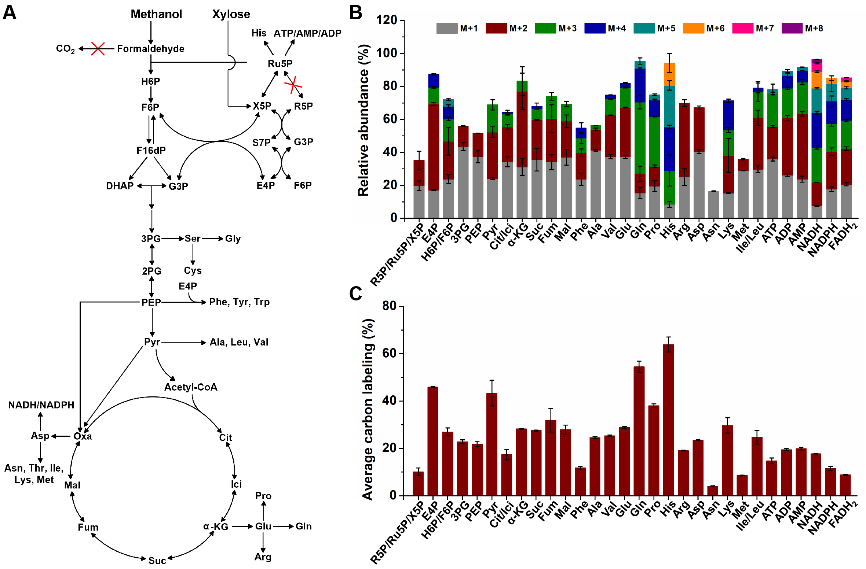Methanol is a promising alternative substrate with low cost and good availability for chemicals and fuels production. Although methanol can be readily converted into short chain chemicals and fuels such as olefins through traditional catalytic conversions, biological conversion of methanol may provide more economic operating conditions and more extensive product range. In the last few years, massive efforts have been devoted to enable industrial platform organisms to incorporate methanol for building up cellular constituents and producing chemicals. However, the existing synthetic methylotrophs still utilize sugar as the major carbon source and methanol is only a minor co-substrate, limiting the bioconversion of methanol.
Recently, researchers from Laboratory of Systems & Synthetic Biotechnology led by Prof. ZHENG Ping and Systems Biology Center led by Prof. SUN Jibin at Tianjin Institute of Industrial Biotechnology (TIB), Chinese Academy of Sciences rationally designed and experimentally engineered the industrial workhorse Corynebacterium glutamicum to serve as a methanol-dependent synthetic methylotroph for methanol bioconversion to amino acids.
By engineering the pentose phosphate pathway and introducing methanol dehydrogenase and ribulose monophosphate pathway, a synthetic methylotrophic C. glutamicum was constructed. Notably, the synthetic methylotroph requires co-utilization of methanol and xylose for growth and the methanol uptake rate is directly associated with its growth rate. Therefore, adaptive laboratory evolution can be applied to improving methanol utilization efficiency. After 14 passages of adaptive laboratory evolution, the evolved mutant showed a 20-fold increase in cell growth rate and utilized methanol and xylose with a high mole ratio of 3.83:1. By feeding the evolved mutant with 13C-methanol and non-labeled xylose, it was discovered that up to 63% carbons of intracellular metabolites were derived from methanol.
Since C. glutamicum is a native glutamate producer, methanol was further used as a carbon source for glutamate production using the methanol-dependent strain. This study demonstrates the potential application of synthetic methylotrophs in bioconversion of methanol into valuable chemicals, including amino acids.
The work entitled “EngineeringCorynebacterium glutamicumfor methanol-dependent growth and glutamate production” has been published in Metabolic Engineering . Mr. TUYISHIME Philibert and Dr. WANG Yu of TIB are co-first authors of this paper. This work was supported by the National Natural Science Foundation of China, the Key Research Program of Chinese Academy of Sciences, the International Partnership Program of Chinese Academy of Sciences, etc.

Strategies to construct the methanol-dependent C. glutamicum.

13C-labeling in intracellular metabolites from the methanol-dependent C. glutamicum
Contact:
Prof. ZHENG Ping
Tianjin Institute of Industrial Biotechnology, Chinese Academy of Sciences.
Email: zheng_p@tib.cas.cn
